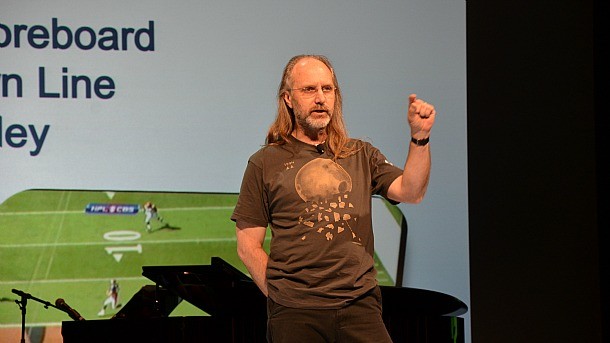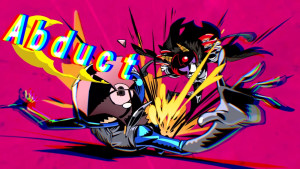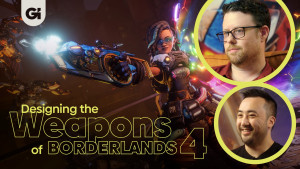EA CCO Prognosticates The Future Of Sports Games

Former Madden developer and current Electronic Arts chief creative officer Richard Hilleman talks about the current standing of the EA sports lineup, how working on sports games makes developers better at their jobs, and turning sports games into cross-platform services.
Talking to your sports background, when you read the message boards it's a very passionate fan base.
The core is very passionate.
I think the sentiment amongst a lot of them is that this last generation of sports games in particular has been overly iterative and not enough risks have been taken for the sake of innovation. Do you think that's a fair assessment of where sports games are this generation?
We make a lot of sports games, and where I think we are in innovation is all over the place. I think our MMA game was unbelievable innovative. Dale Jackson, who built that game, tried to do more new stuff and really took the job of 'how do I tell the player story' more seriously than anybody had ever taken it in sports. And the results spoke for themselves unfortunately in that particular case, but I would say that products like FIFA have done a wonderful job of evolving to be a better game. They've done it in two ways. By caring about what people who love the sport care about, but by not forgetting that there are new players. The challenge for us I think in Madden is how do you continue to build a game that's attractive, interesting, engaging, and immersive for the hardest of hardcore football players, and doesn't turn into something that is absolutely impossible for another human being. The tension for us is between those two communities. It isn't an either/or decision, but it is a decision about where you spend your time. I love that core audience, but they do not care a rat's ass about whether or not somebody can learn how to play the game. So it turns out that Madden is hard because football is kinda hard, and Madden is kinda hard. So when you put football and Madden together, it's really hard. We need to solve that problem. We tried a couple of years ago – GameFlow was an attempt to help make the football part not so hard.
And before that you had the Obi-Wan Kenobi-style tutorial...
That's right. So we continue to try and solve that problem. I don't think we have done it yet, so that's the challenge in front of us. Madden when it was at its best was a game that people liked because it was a good video game and the fact that it was a football game was – they didn't even almost notice. The number of people who played NHL who couldn't even name five NHL teams before they played the game was remarkable. That means we had done our job particularly well because we made a game that the people who loved the sport loved and got, and yet infected a whole new generation with love for that sport. That's us at our absolute best. That's what we need to get back to.
What are the opportunities you see on the horizon for the next 10 years for how sports games can grow, change, and evolve?
So I went to SIEGE – Georgia Tech runs a conference down in Georgia. It's gotta be the only video game conference in the south. So I went to it last year and the talk I gave was about how sports games could make you a better game designer. The thing that was at the bottom of that was that sports games do a number of things that are smart for the future. One of them is that they don't take the game seriously, meaning the person who makes a sports game is totally given over to the people who play that game. I'm never going to get credit for inventing football. Somebody else did that. So all I can do is this expression and to connect it to the best customers. That takes your ego out of it in a way that's very constructive for giving as much to the player as possible.
The second thing that is true is sports fans look like the rest of the world. The growth in the video game business in the last eight years or so has been from the Wii, from mobile, from web-based, and from social. And in every single one of those cases those are not core products. That means the players who play those look like the rest of the world. If you look at mobile in particular and where the companies that sell mobile services spend their money, they spend their advertising and license money on sports. Why is that? Because it works. So my point is that underlying all of this sports customers are more indicative of the rest of the world than the rest of the customers you currently sell to. The responsibilities you have in a sports context are similar to the responsibilities in a great game. You need to teach them how to play the game, you need to coach them to be better, you need to celebrate your successes, and you need to help them understand how to fit into and be more competitive in the future. What's interesting is we never take that coaching job terribly serious in traditional video game. Once they've learned it, they no longer need to understand the rules. They now need to learn how to be better. I don't think we take that responsibility. We lose people when they get to the challenge plateau and they don't know how to get any better.
So my point is that sports products teach you by their very nature that it's your responsibility to be a coach, because it's a fundamental part of the cycle of the game. Those are the things that I think sports can bring to other games, and they are the kind of things that make sports producers and designers kind of uniquely suited to the rest of the world. The final thing I would say is sports customers monetize like the rest of the world monetizes. They buy Center Ice subscriptions for two hundred and something dollars a year. They buy personal seat licenses. And yet they will also buy 10-cent transactions – and we won't even talk about sports gambling. My point is that sports fans show you what the rest of the world looks like, and show you the variety of monetization opportunities in a way that virtually no other player in the market today does. If you're a developer who wants to understand how to design for the future, play a sports game.
Speaking of monetization, you always hear sports fans daydream about EA breaking out of the yearly release cycle and maybe selling roster updates and gameplay patches between games, then releasing sports titles every two years with more impactful gameplay changes. Is that a realistic scenario?
It's somewhat realistic, but there are barriers they are not thinking about. The challenge for us in the console business is the total number of iteration cycles we have within the season of a product is pretty limited. Sometimes I can get a patch in six weeks out of a console manufacturer, but most of the time it's 90 days. That means at best I get two update cycles within a sports year, for instance. My ability to fix the game during the year is pretty limited because of the number of bites of the apple I get is pretty limited. You're absolutely right I could change my rosters every year, but what we find is that we have to do other things to make the game play right.
What about the server-side tuning that the NHL team has adopted for making gameplay tweaks?
That works in a very limited way that we spend a tremendous amount of time with the manufacturers to negotiate. It's not what they naturally want to do, and they have good reasons why. They have security things to worry about I completely understand. The second thing is they're after the unity of the experience, and I understand that too. We want our consumers to have the best experience but by reducing that granularity you give me very few windows to make my product better. Usually when a new season comes we put in a new set of character rosters but we also put in a bunch of new plays and generally what we do is we spend the next six weeks trying to figure out what we've broken.
Part of this is that the NFL and NHL as examples there is too much innovation in the game to really sit still. The AI from year to year is not good enough. And so we have to go back and reach that again. Now could we update that in other ways? It's possible. I think we would love to have a more service, long-term relationship with our customers. I'd love to sell my customer Madden on all the platforms in an integrated experience with the ability to give them other services that maybe nobody had. We're going to try and do that, but right now today simply the roster updates and the minor code updates I think would be a disappointing experience for those people. It would be a lot less than they would want. We would like to have a more continuous developer relationship on our sports game engine. That's what we would like to do. That's more possible in the online space than it is on the console space, and you will probably see more innovation in that part of our world to try and do that.
One of the big pitfalls for Madden and sports games in general is the transition from one console generation from the next.
One of the cases I made at SIEGE was just the opposite – that sports games have a great advantage going into new platforms.
You would think so, but Madden 06 for the Xbox 360 shipped with a fraction of the feature set that the PS2 version had. That game is now considered the black sheep of the entire franchise.
I don't remember the specifics of that, and I may not have been here when that happened, but what I can tell you that was true about that launch is it was extremely accelerated, and it's very possible we did not have the assets when we needed to do what we needed to do. The only thing stupider than release a less-than-perfect Madden is to not release one until like March. So one of the challenges with sports is they have their seasons and you really don't sell outside of their seasons. Sometimes our timing dictates the quality of the product we can ship, especially when hardware manufacturing dictates when we get to start. I do agree with you about that product – we don't accept that. My plan is for you to never see that again.










